



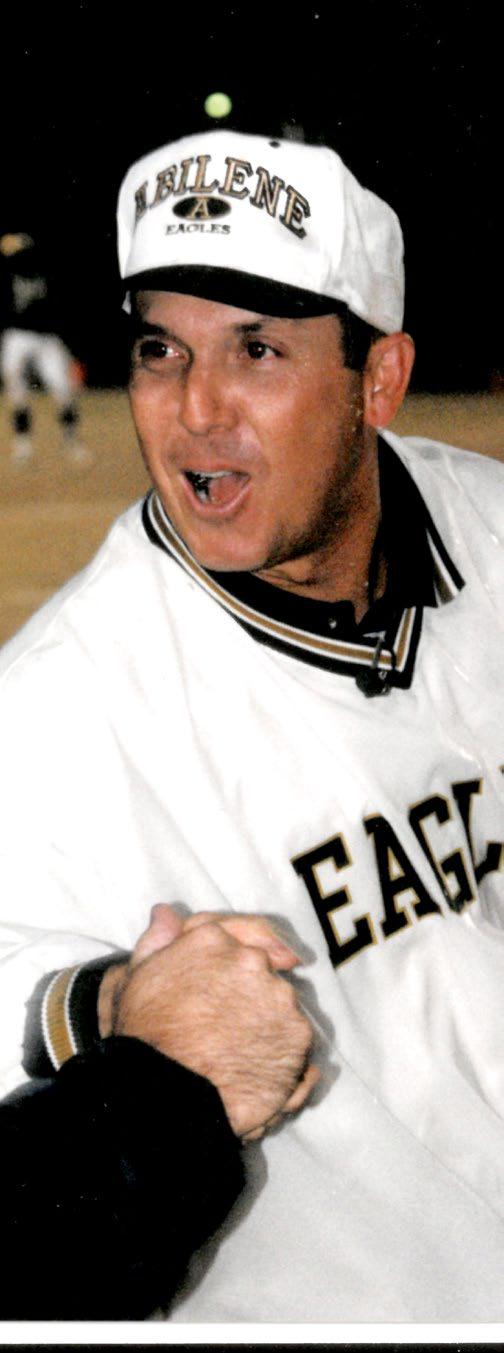




R E G I S T E R A T : P L A Y T H E T E X A S W A Y . C O M













R E G I S T E R A T : P L A Y T H E T E X A S W A Y . C O M




The all-in-one digital ticketing solution that offers more – empowering schools, organizations, and event organizers to streamline ticketing and event management.
• STREAMLINED DIGITAL TICKETING
• INTEGRATED SOCIAL MEDIA MARKETING
• EFFORTLESS FUNDRAISING
• RELIABLE SUPPORT













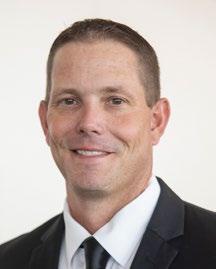


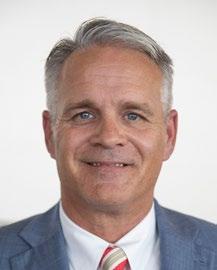

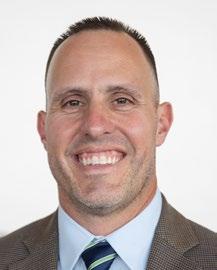





BOARD OF DIRECTORS COMMITTEES for 2024-2025:
: Sterling Doty, Dave Henigan, B.J. Gotte, *Kendall Miller, John Snelson, Drew Sanders
Chip Darden, *Chad Dunnam, Joe Hubbard, Clint Fuller, Shaun McDowell, Leo Mireles
Chris Cochran, *LaQueisha Dickerson, Clint Hartman, Don Hyde, Marvin Sedberry Jr., Fred Staugh
Jerry Carpentier, Josh Gibson, Brian Randle, *Aaron Roan, Jacob Thompson, Todd Winfrey
Kevin Crane, Jeff Ellison, Reuben Farias, Allen Gratts, *Lance Moffett, Juan Morales
Dub Farris, Gary Joseph, *Johnny Taylor, Allen Wilson *Denotes Chair
Director-Elects & Alternates:
– Casey Pearce, Breckenridge; Region 3 – Josh Gibson, Pleasant – Michael Pry, El Paso Coronado; Region 5 – Brian Randle, Randle; Region 6 – Don Hyde, La – Ben Bitner, CC Veterans Memorial; Region 8 – Eddie Salas, San Antonio Harlan;
– Jason Richards, Frenship Memorial; Region 2 – Sammy Burnett Brownwood; Region 3 – Marcus – Daren Walker, El Paso Franklin; Region 5 – Rick LaFavers, Ridge Point; – David Sanchez, Laredo United; Region 8 – Tony Salazar, Westlake; – Mike Reed, Gordon; Region 3 – Antonio Wiley, Coppell; Region – Travis Reeve, El Campo; Region 6 – Shane Tolleson, Waxahachie; – JC Ramirez, Jr., Veterans Memorial; Region 8 – Doug Warren, Wimberley;





ATHLETIC DIRECTORS
R-1 Jason Richards, Frenship Memorial
R-2 Russell Lucas, Sweetwater
R-3 Seth Stinton, Melissa
R-4 *Jaime Boswell, Andrews
R-5 Virginia Flores, Cy-Fair
R-6 Don Drake, Ennis
R-7 Rob Davies, Harlingen
R-8 Stan Laing, Northside
ATHLETIC TRAINERS
R-1 Steven Ortiz, Midl. Legacy
R-2 Billy Abbe, Abilene
R-3 *Mike Harrison, Allen
R-4 Isaac Wimberley, Lub. Cooper
R-5 Aimee Williams, Fort Bend
R-6 Greg Goerig, Midlothian
R-7 Benjamin Garcia, Harlingen
R-8 Chad Hennessey, Georgetown
AQUATICS
R-1 OPEN
R-2 Casey Pacheco, Abl. Wylie
R-3 Eric Vogan, Texas High
R-4 *Michael Waldmann, Andrews
R-5 Robert Kelly, Pasadena
R-6 Daniel Gonzalez, Longview
R-7 Hector Castaneda Jr., Harl. South
R-8 Kari Brothers, Northside
BASEBALL
R-1 Thomas Brockman, Idalou
R-2 Allen McGee, Graham
R-3 Josh Wheeler, Muenster
R-4 Juan Orozco, EP Coronado
R-5 *Corey Cephus, Cy-Ranch
R-6 Matthew Anderson, Franklin
R-7 Adrian Alaniz, Sinton
R-8 Tom Alfieri, SA Churchill
BOYS BASKETBALL
R-1 Jason Pillion, Amarillo
R-2 *C.J. Villegas, Brady
R-3 Ty Tabor, Krum
R-4 Jason Archibald, Wink
R-5 Danny Russell, Friendswood
R-6 Jake Russ, Franklin
R-7 Sean Armstrong, G. Portland
R-8 Andrew Brewer, Alamo Heights
At-Large Samuel Benitez, North Shore
GIRLS BASKETBALL
R-1 Tyler Helms, Idalou
R-2 *Kenni Patton, Electra
R-3 Donna McCullough, Sachse
R-4 Steve Lee, Pebble Hills
R-5 Christina Jamerson, Dulles
R-6 Marcus Willis, La Vega
R-7 Ashley Moncivaiz, Harlingen
R-8 Christina Camacho, Judson
At-Large Brooke Brittain, Mansfield
BOYS CROSS COUNTRY
R-1 Jay McCook, Canadian
R-2 Glenn Griffin, Holliday
R-3 *Logan Kelly, Lovejoy
R-4 Alonzo Samaniego, Presidio
R-5 Kenneth Decuir, Paetow
R-6 Josh Sypert, Eustace
R-7 Efrain Ambriz, Harlingen
R-8 Kelly Thompson, Leander Rouse
GIRLS CROSS COUNTRY
R-1 Ray Baca, Canyon
R-2 Loy Triana, Burkburnet
R-3 *Susan Bailey, Highland Park
R-4 Corina Marrufo, Del Valle
R-5 Jim Darcey, Katy
R-6 Edward DeLaCruz, Waxahachie
R-7 Joey Rendon, Santa Gertrudis
R-8 Rachel Freeman, SA Reagan
At-Large Karmen Sanders, Taylor
FOOTBALL
6-Man Josh Stanaland, Jayton
R-1 Jason Richards, Frenship Memorial
R-2 Sterling Doty, Stephenville
R-3 *Joe Castillo, Little Elm
R-4 Ruben Rodriguez, Eastlake
R-5 Rick LaFavers, Ridge Point
R-6 Clint Fuller, Kilgore
R-7 Brent Davis, G. Portland
R-8 Alan Haire, Jarrell
BOYS GOLF
R-1 Justin Wilborn, Lub. Cooper
R-2 Jason Hodges, Stephenville
R-3 Charlie Means, Denison
R-4 Paul Bustamante, Pebble Hills
R-5 *Mike Martin, Memorial
R-6 Brant Bennett, Midlothian Heritage
R-7 Celso Gonzalez, McAllen Mem.
R-8 Glenn Phair, New Braunfels
At-Large Paige Martin, Southlake
GIRLS GOLF
R-1 OPEN
R-2 Chris Sims, Abilene Cooper
R-3 Kerry Gabel, FM Marcus
R-4 Shawn Trousdale, Eastwood
R-5 *Angela Chancellor, Kingwood Park
R-6 Joel Davenport, Ennis
R-7 Jennifer Ruiz, McAllen
R-8 Patrick Pruitt, Westlake
At-Large Brent McCuiston, Alamo Heights
BOYS SOCCER
R-1 Hugo Aguillon, West Plains
R-2 Justin Rhodes, Stephenville
R-3 Pablo Regalado, Kemp
R-4 OPEN
R-5 *Ben Powell, Bellville
R-6 OPEN
R-7 Julian Robles, Harl. South
R-8 David Rogers, SA Lee
At-Large Jason Meekins, Katy Jordan
GIRLS SOCCER
R-1 Alistair Caldwell, Lub. Coronado
R-2 Carl Wiersema, WF Rider
R-3 Kelly Thompson, Allen
R-4 OPEN
R-5 *Evelyn Torres, Ridge Point
R-6 Gerald Slovacek, Midlo. Heritage
R-7 OPEN
R-8 Bailee Perrine, Dripping Springs
At-Large Aaron McGough, Highland Park
SOFTBALL
R-1 Styler Haddock, Canyon
R-2 Cynthia Herrera, Stamford
R-3 *Kathy Schoettle, Allen
R-4 Lindsie Swarb, Monahans
R-5 Katie Roberts, Brenham
R-6 Same Weeks, Troup
R-7 Audra Troutman, Sinton
R-8 Jennifer Fox, Alamo Heights
TENNIS
R-1 Darby Norman, Canyon Randall
R-2 *Carrie Castleberry, Vernon
R-3 Sylvia Sims, Frisco Heritage
R-4 OPEN
R-5 Daniel Marshall, A&M Consol.
R-6 OPEN
R-7 Eddie Marquez, Roma
R-8 Andrew Duong, Comal Canyon
At-Large David DeLeon, Canyon
BOYS TRACK & FIELD
R-1 Jon Murphy, Stratford
R-2 Andy Howard, Goldthwaite
R-3 *Janson Head, Denton Ryan
R-4 Brien Burchett, Greenwood
R-5 Jason Haddock, Clements
R-6 Josh Rankin, Longview
R-7 Bob Bechtold, McAllen
R-8 OPEN
GIRLS TRACK & FIELD
R-1 Crista Jones, Lub. Monterey
R-2 *Jeremiah Butchee, Stephenville
R-3 Ashley Broom, Sunnyvale
R-4 Robert Ontiveroz, Monahans
R-5 David Pollack, Seven Lakes
R-6 Jordan Johnson, Midway
R-7 Stacy Zamzow, Goliad
R-8 Jen McHugh, SA Reagan
VOLLEYBALL
R-1 Kelly Lozada, Lubbock Monterey
R-2 Shay Douglas, Stephenville
R-3 Jennifer Chandler, Northwest
R-4 Heather Archibald, Wink
R-5 Jenny Adcock, Stratford
R-6 Arden Johnson, Troup
R-7 Jess Odem, Goliad
R-8 *Rachel Torvik, SA Reagan
At-Large Kayla Allen, Vista Ridge
BOYS WRESTLING
R-1 Dalton Clear, Canyon
R-2 Brock Payne, Vernon
R-3 *Kyle Stevens, Anna
R-4 Oscar Norez, EP Montwood
R-5 Vinnie Lowe, Katy
R-6 Collin Stroner, Midlothian Heritage
R-7 Donald "Ed" Arvin, CC Veterans Memorial
R-8 David Burdick, Vista Ridge
GIRLS WRESTLING
R-1 *Tyler Frausto, Canyon
R-2 OPEN
R-3 Tiffany Mangini, Flower Mound
R-4 Stephen Scott, EP Franklin
R-5 Nicholas Johnson, Cy-Woods
R-6 OPEN
R-7 Ronald Pratt, Rio Grande City
R-8 Garvin Smith, San Marcos
*DENOTES CHAIR



March 2025
The weather is beginning to warm up and spring break is in our sights. That is when you know that March has arrived. Coaches in baseball, softball, soccer, track, and tennis love the fact that they can possibly get some relatively warm nights to play games as opposed to the frigid temperatures of the previous months. Campus athletic directors stay busy keeping up with the 10 different teams that are playing on campus at the same time.
The THSCEF Leadership Summit in Arlington on February 24th was filled with coaches across the state who shared a burning desire to learn more about what it truly means to Coach Beyond the Game. We were all reminded that memories from our time in this profession do not center around trophies, but rather around the memories created from the experiences and relationships that are formed along our journey. We heard from eight amazing speakers who shared this truth in so many different words and stories. We would like to thank all of you who attended, our sponsors, and our speakers who made the Leadership Summit a tremendous event. If you have never attended, please make plans to attend next February. The Leadership Summit is an event that EVERYONE on your campus can benefit from.
A few reminders of important dates approaching:
• APRIL 1 - SOCCER ACADEMIC ALL-STATE DUE
• APRIL 6-7 - THSCA BOARD MEETING
• APRIL 15 - GOLF, TRACK, BASEBALL, SOFTBALL, & TENNIS ACADEMIC ALL-STATE DUE
• REGISTRATION FOR COACHING SCHOOL & MEMBERSHIP RENEWAL FOR 25-26 IS NOW OPEN
Congratulations to the basketball coaches that led their teams to San Antonio, and a special congrats to those that returned home with a state championship trophy. Please do not forget to get your Super Elite Team and Coach of the Year nominations in asap for basketball. Good luck to all the soccer coaches that are beginning their road to Georgetown in the soccer playoffs.
Coaches, do not forget that Coaching School this summer will return to San Antonio; and REGISTRATION IS NOW OPEN!! We look forward to seeing you at what we anticipate being our best Coaching School yet. This summer there will be more on field/court lectures and more lectures from our Texas Universities.. They have made an extra commitment to our Texas H.S. Coaches. Membership numbers are our strength; and our strength is needed now more than ever as we MUST continue to be active with our legislature and protect and support public education and athletics.
In closing, I want to continue to thank you for your commitment to the young people you coach daily. Sometimes I feel myself getting caught up in all the changes that are going on in our profession.
Sometimes I waste precious time thinking about what is going on in college sports and the trickledown effect it may have on us. I just want to remind you that you are still in the greatest profession on the planet, and that you did not get into this profession because you wanted it to be easy or because you wanted to feel appreciated. You got into this profession because you knew that you had been given a gift that needed to be shared with the student-athletes in your communities. Stay focused on the gift that you must share and on your athletes who so desperately need you.
Have a great Spring Break!

John Snelson, THSCA President




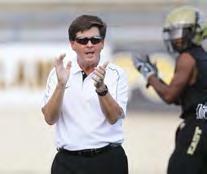



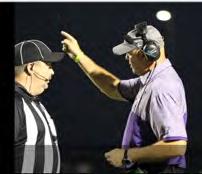

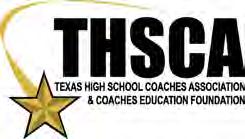












Obituary
Allen Aldridge was an NFL linebacker who won Super Bowl XXXII with the Denver Broncos and played for the Detroit Lions. Aldridge played college football for the University of Houston Cougars in his hometown. He was chosen by the Broncos in the second round of the 1994 NFL draft, spending four years with the Denver team. While with the Broncos, he helped his team win Super Bowl XXXII on January 25, 1998. After that victory, Aldridge signed with the Lions, where he played another four seasons, including as the Detroit team’s long snapper. He was briefly signed with the Houston Texans in 2002 before choosing to retire from the NFL.

In 2008, Aldridge became the head football coach at George Bush High School in Richmond, Texas. He continued there for many years, and in 2022, he was nominated as the Houston Texans’ High School Coach of the Week. Allen was a 20 year member of the THSCA. Aldridge once said, “I saw my father coach – I mean, he was a coach for 30 years. He always came home happy, just working with kids and things like that. So I saw him do it, and I have a family full of educators, and that’s just how I … knew what I wanted to do.”
Obituary
Heath Chandler Aldrich of Wichita Falls, Texas was welcomed into heaven on December 26, 2024. Heath was born September 1, 1984 in Wichita Falls to Keith Alan Aldrich and Gayla Renee Chandler Aldrich.

In 2003, Heath graduated from City View High School and continued his education earning a Bachelor's Degree from Midwestern State Univ. His passion for football led him to pursue a career growing young athletes into young men of great character and talent. His coaching career consisted of nine years in Petrolia, two years in Wichita Falls, and lastly returning to his Alma Mater City View HS where he was the offensive coordinator and girl’s coordinator. Heath’s hard work and dedication paid off and he quickly transitioned into head coach and then his dream role of Athletic Director of City View ISD. During his first year as Athletic Director, he led his team to victory as Bi-district Champions of the 2024 football season. Heath’s impact reached far beyond the field, establishing themes to improve motivation and inspire his team. Heath’s dedication to his team, and his great battle against cancer inspired all that knew him and loved him.
Heath married the love of his life, Mikel Moore on June 19, 2010. They share two beautiful children, Blayke Lorae and Harlyn Heath.
Obituary
Jimmie Wayne Craig, 78, of Austin, Texas, passed away peacefully on January 26th, 2025 listening to some of his favorite music with his two favorite girls by his side: his wife of 46 years Jennifer and his daughter Cassie.
Jimmie was a man of many things but he was foremost - a man who loved and cared for the people around him: his family, many friends, students, colleagues and although not technically human, his cats. He showed this throughout his life by his ability to make others smile with his humor, his loyalty to the people he cared about, his curiosity about the world around him and his devotion to coaching and education.
Jimmie was born on April 19th, 1946 to Dorothy and Tommie Craig in Austin, TX. After Jimmie graduated from William B. Travis HS in 1964, he went on to study Mathematics and Physical Education at Texas Lutheran College.

From there he went on to touch so many young lives with a career of 38 years in coaching everything from high school football to Cassie’s 3rd grade basketball team and all sports in between. On top of his extensive and impressive coaching career at schools across Austin - Jimmie was a skilled math and P.E. teacher taking on any challenge that was needed.
In 1977, Jimmie met Jennifer Freytag in Flatonia, Texas at Czhilispiel by asking her to dance to a Linda Rondstandt song thus beginning a life long romance and strong marriage that led to the birth of their daughter Cassandra Marie Craig.
In 2006, Jimmie retired and spent his time doing the things he loved - most importantly, golfing. Becoming a founding member of Lost Creek Country Club in 1976, he made countless memories and endless close friends, many that survive him today. If he wasn’t watching sports with his beloved wife, reading a book about history or telling Cassie to not bring home another cat (that he’d end up loving) - you could find him on the golf greens cracking jokes and making smiles with anyone he’d encounter.

Obituary
Aaron De La Torre was born on May 6, 1975, in Dallas, Texas, to Terry and Abraham De La Torre. He was raised in Irving and graduated from Irving HS in 1993.
Aaron played football at Stephen F. Austin University and continued his career playing professionally with the Pittsburgh Steelers, Dallas Cowboys, and in NFL Europe before retiring. In 1992, he met the love of his life, Lori Teague, at Nimitz HS. Aaron and Lori married on July 10, 1999, and celebrated 25 years of marriage in 2024. They have four children: Alex, Adyson, Kane, and Kolt.

Aaron’s family was his world, and there was nothing he wouldn’t have done for them. He was a devoted friend whose unwavering loyalty and wisdom touched the lives of all who knew him. A hard worker and fierce lover, he offered steadfast support and understanding, leaving behind a legacy of love and strength that will forever resonate in our hearts. His passion was to help others which he did through his very successful and rewarding career as a football coach and father. He has left a lasting impact on everyone he has encountered.
Obituary
Robert "Bobby" Todd Ford, Jr. passed away on February 12, 2025, at the age of 79. He was born September 4, 1945, in Austin, Texas, to Robert Todd and Zoe Jacobs Ford. He grew up in Austin and attained the rank of Eagle Scout. He graduated from Travis HS and continued his education Southwest Texas State Univ., graduating with a Bachelor of Science degree in Education. He later attended Texas A&I Univ. where he received his Master’s of Education. He married Nancy Carter of Dilley in December of 1968.

Throughout most of his life Bobby was a football coach, a teacher, and a school administrator. He coached and taught at Del Valle Junior High School, Bulverde Junior High School, Freer High School, Laredo United High School, Luling High School, and another 21-year stint at Freer High School, from which he retired in 2008. At that time, he and Nancy moved to the Kinsey Ranch west of Millett where he has been a ranch manager for the last seventeen years. Bobby loved the outdoors, and thoroughly enjoyed his ranch work. But the pride of his life was first, his family and grandchildren, and second, seeing the many lives he touched in his 36-year coaching career.

Coach Chuck Cotton’s youngest daughter, Colby Leigh Cotton Siemering of Austin, along with her two sons, Dalton & Dylan Cotton are offering their Annual Scholarship to a child athlete of a coach!
Applications will be accepted February 1, 2025 -- April 15, 2025 The 2024 - 2025 winner will be announced on May 15, 2025

See rules and download the application at www.CoachCotton.org info@CoachCotton.org (512) 577.7952









We are always on the look out for great content for publication in Texas Coach magazine! Article submissions can be sport-specific skills and techniques, or they could be related to program administration, team culture, building relationships with athletes, parents, administrators, etc. Maybe a top 10 list you want to create or a “Do’s and Don’ts guide?” We publish articles from both members and nonmembers... so we encourage you to reach out to all of the different sport coaches on your campus, your athletic adminstrators, spouses, student-athletes, school administrators, booster club presidents, etc. and ask them to share their knowledge and wisdom with our Texas coaching family!
Please email all article submissions to beckyadams@thsca.com – Word Document format is preferred, and 3-5 pages would be the ideal length. Also, if you have photos you would like us to use for the article, please attach those to the email as well.




Congratulations to the Texas High School Broyles Award Recipients:
2023: Dane Saucier, Wimberley 2024: Franciso Maldonado, Midl. Legacy

A Texas based Football Camp that develops young Quarterbacks & Receivers through proper instruction and training. Established in 1990, Air It Out has left a lasting impact on many young players lives; not only through what they learned on the football field, but through leadership and teamwork exercises that can be used in their professional lives in the future.


Improve day-to-day team communication with a platform built for coaches, not classrooms. sportsYou stores all district communications and can provide messaging history to administrators upon request.

sportsYou is a school-safe platform
Free for schools + built for coaches
sportsYou does not sell individual user data
Districts can access communication history
Your data is encrypted and stored in the US

sportsYou is a 100% American-owned company

1. Sign up for sportsYou
2. Create your first team/group
3. Add members
4. Configure team settings
5. Designate admins Set Up Your Teams
Download the sportsYou App to Get Started





















“Curiosity will conquer fear even more than bravery will.”
James Stephens
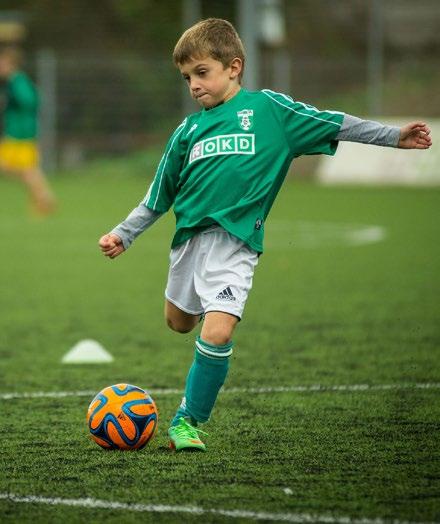
"Curiosity about life in all aspects, I think, is still the secret of great creative people.”
Leo Burnett
“When you're different, sometimes you don't see the millions of people who accept you for what you are. All you notice is the person who doesn't.”
Jodi Picoult
“If you have no confidence in self, you are twice defeated in the race of life. With confidence, you have won even before you have started.”
Cicero
"Once we believe in ourselves, we can risk curiosity, wonder, spontaneous delight, or any experience that reveals the human spirit.”
E.E. Cummings
“My favourite words are possibilities, opportunities and curiosity. I think if you are curious, you create opportunities, and then if you open the doors, you create possibilities..”
Mario Testino

“My mission in life is not merely to survive, but to thrive and do so with some passion, some compassion, some humor, and some style.”
Maya Angelou
“There is no power for change greater than a community discovering what it cares about.”
Margaret Wheatley
" Service to others is the rent you pay for your room here on Earth.”
Muhammad Ali
“Life’s most persistent and urgent question is, ‘What are you doing for others?”
Martin Luther King, Jr.
“The smallest act of kindness is worth more than the grandest intention.”
Oscar Wilde



BY CARLOS RODRIGUEZ LA JOYA H. S. HEAD SOFTBALL COACH
La Joya High School softball student-athlete,
The challenge of exerting focused, effective effort towards a common goal is all in your state of belief. We want to share a couple of parables that we believe will impact your approach to any endeavor you choose to undertake. We believe taking heed to the message will serve you well, now and in life. Both of these parables have the same base, only a variation or twist that leaves the reader ample room for interpretation. We have condensed the stories making sure that the core lesson is in place.
A man stood ready to cross a 20-yard tightrope 100 feet off the ground with his wheelbarrow and no safety net. A teenage girl, like you, that was watching was asked by the tightrope artist if she believed he could do it. She responded confidently that he could. The artist asked if she was sure. She, again,excitingly reaffirmed her belief. He asked a third and final time, and again the girl continued to enthusiastically support him. The artist, now knowing she believed he could do it, asked the decision-making question: Will you get in the wheelbarrow? Without hesitation the girl replied that she would not get in the wheelbarrow. He now wanted to know that if she believed in him, as she had communicated several times, why would she not get in the wheelbarrow?
Our 2025 softball slogan that will drive us daily will be, “We Continue to Build Belief.” We want you to have a clear understanding of the expectations set forth. We want you to believe so strongly that you will take action, you will “push” or “get in” the wheelbarrow! Your beliefs will guide your actions. Will there be times when your actions don't align with your beliefs? Absolutely! It is at this time that you must garnish the courage to act upon your beliefs.
It reminds me of a fishing trip with the softball staff. We all are using the same lure/bait, but the one that believes he will catch will work the lure vigorously with the expectation of catching. His actions are tied into his belief. Every cast has the same belief/action irrelevant of the outcome of the previous cast. The staff member that casts and hopes he catches, without working the lure, is displaying his belief, or lack thereof, through his actions. He is letting his previous cast influence his current cast. We want you to act on your beliefs on every cast - - even when it is not easy!
The tightrope artist has been advertising for weeks that he will be crossing from skyscraper A to skyscraper B on a tightrope.The day of the event has arrived, and many spectators have come to witness the feat. Both rooftops have many curious people anxiously awaiting the dangerous display of commitment to a craft . To enhance the moment, the artist wants to know if they believe he can make it across; will he be able to take the wheelbarrow on the tightrope to skyscraper B? Some believe; many are indifferent even though no safety net was in place. The artist embarks on his dangerous journey and completes the feat, arriving confidently to a jubilant crowd. He now addresses the crowd that has witnessed his feat, with a decision-making question: Who will get in the wheelbarrow as I venture back to skyscraper A?
In keeping with our 2025 softball slogan, "We Continue to Build Belief,” the most evident action is the artist getting from building A to building B and reaffirming/challenging the crowd’s beliefs. He has organized,
publicized, prepared, and accomplished a desired goal. His deep-rooted belief was so strong that he was willing to ”push” people across the buildings. His belief was the driving force behind his action. Our 2025 team will have players that want to ”push” the wheelbarrow in the right direction and players that will willingly jump in and help balance it. These players are action-driven. They believe teams are highly conditional and parameters are essential to the organization’s success. Belief is what drives their actions. Unfortunately, we all don’t have the same beliefs when it comes to accomplishing a common goal. We have categorized some of the beliefs/actions we feel exist.
Player A - She will “push” the wheelbarrow on the tightrope to the next building.
This individual will demonstrate consistent action that sets a standard of performance for others to follow. She expects others to get in the wheelbarrow.
Commitment level is extremely high. There is no safety net required for this player. She is willing to risk failure because when she fails, she regroups quickly because she understands the relationship between adversity and improvement. She makes people around her better.
Player B - She will get in the wheelbarrow to cross to the next building.
This individual will act on beliefs for the betterment of the team. Commitment level is high. She does not require a safety net because she feels connected to others in the wheelbarrow. When she falls her teammates are her support system. She makes people around her better.
Player C - She will build her own tightrope parallel to the one that exists to cross to the next building.This individual will seek the common goal but the actions are based on a personal agenda. Coach Pat Riley calls it “the disease of me.” Commitment level is inconsistent. A safety net is required because she will not lean on teammates during times of adversity. The only support system she allows comes from outside the organization. She does not make people around her better as she navigates on her own beliefs.
Player D - She will build a platform next to the tightrope to cross to the next building. This individual will create her own safety net by building a platform that is easy to walk on. She will not venture past her self-imposed limitations. Commitment level is adequate but she will not sacrifice personal activities for team development. She does not make people around her better.
Player E - She will walk across to the next building and take the elevator to the top, stopping on each floor to decide if she will continue. This individual will find the easy road. Commitment level is low and a safety net is not needed due to low level of risk. She will not make people around her better; also, she will try to influence others to join her in the calculated journey to the top.
Player F - She will not cross to the next building. She will observe from a distance and only interject with negativity. This individual will “beat” your team everyday. Commitment level is non-existent and is detrimental to team success as she will attempt to disrupt team unity. She does not require a safety net because when she intentionally falls, she will opt out. She will make the team better when she leaves.
Each player will speak of belief but only some take appropriate actions based on their motive to accomplish the common goal.
Which one are you?
Which one do you strive to be?
Remember, “We Continue to Build Belief” through our daily action based on our beliefs..
See you at the park!
Sadly, Coach Carlos Rodriguez passed away in early February, 2025. A pioneer of RGV softball, 500+ career wins and the only softball coach La Joya High School has ever known. Thank you coach for sharing your insight and knowledge with our THSCA family!













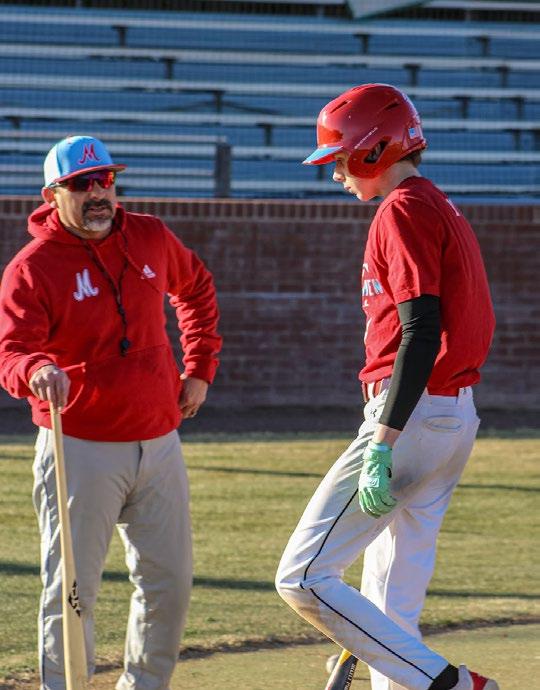



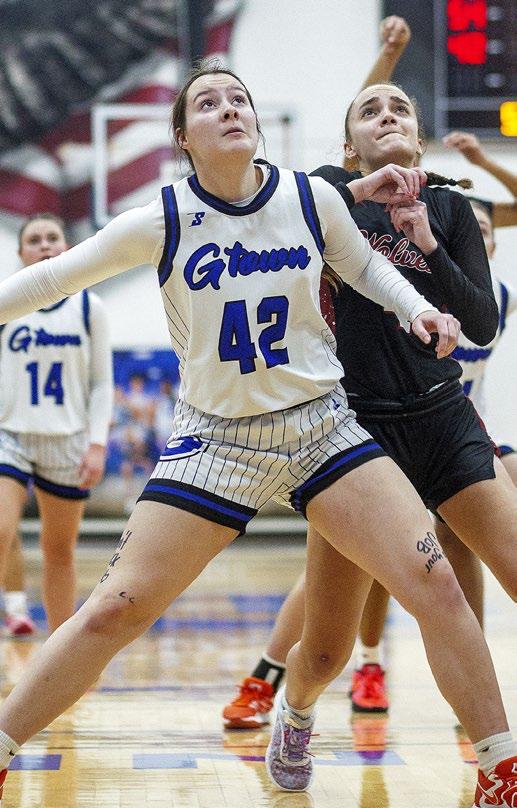



































2WORDS
ARLINGTON CVB BALFOUR

DALLAS COWBOYS
DELL CHILDREN'S
HUDL SKYCOACH
TEXAS FARM BUREAU INSURANCE
THE TEXAS WAY
WATERBOY GRAPHICS











Henry B. Gonzalez Convention Center

Planning for the 2025 Coaching School & Convention in San Antonio is underway, and we are excited to host all our Texas coaches! We want to provide you with some details & updates and what to expect for 2025!
» REGISTRATION Please make note of the registration deadlines below to afford our office staff time to get registrations processed before the event.
REGISTRATION DEADLINES/COST:
MARCH 1 - JUNE 1 - $85 PER COACH
JUNE 2 - JULY 1 - $100 PER COACH
ONSITE AT CONVENTION - $115 PER COACH
(Please note convention registration fees are separate from the annual membership fee. Membership fee/renewal is a separate $70 fee.)
Registering a group of coaches with a school payment? You can now find a packet including a Registration Checklist & a Registration Payment Cover Sheet for download on our THSCA website. www.thsca.com/convention
» TRANSFERS & REFUNDS The deadline to request a refund or transfer of payment for a Coaching School registration will be July 1st. If you are paying with a school check and still need to hire a coach, you may send in the registration fee with the rest of your staff and make a note that you would like us to store it in our system as open credit on your school's account until you are able to hire that person.
July 20-22
» THSCA MEETINGS AT COACHING SCHOOL
Regional meetings will be on Monday afternoon, from 3:45-5:00 PM as the final agenda item to finish out the day. The THSCA general meeting will still be held on Tuesday morning at 11:30 AM, and we will vote on the THSCA President-Elect nominees.
» HALL OF HONOR We will celebrate all of our Hall of Honor Class of 2025 Inductees (Don Brooks, Brad Davis, Jeff Traylor, Steve Warren & Rodney Webb), our State Champion coaches, and our esteemed award winners at the Hall of Honor Banquet. This banquet will kick off our Coaching School schedule on Saturday, July 19th at 7:00 PM in the Henry B. Gonzalez Convention Center, Stars at Night Ballroom on the third floor. Tickets will be available for purchase in advance only.
» WHAT IS INCLUDED IN THE 2025 COACHING SCHOOL REGISTRATION FEE:
► IN-PERSON ACCESS to LIVE Demos, Sport Lectures & Professional Development Lectures
► IN-PERSON ACCESS to Exhibit Show and Sponsored Networking Events
► IN-PERSON ACCESS to THSCA Regional Meetings & General Meeting, including your OPPORTUNITY TO VOTE OR BE NOMINATED in our 2025 THSCA elections.
► IN-PERSON OPTION to print/laminate your THSCA membership card for upcoming year.
► Email Certificate of Participation for Continuing Education Hours to provide to your School. (Only available to those who attend the convention in-person and pick up their packet onsite.)

Booking for the THSCA housing block and updates on hotel availability and parking are only accessible on our website at: www.thsca.com/hotels
Online booking will require a credit card in order to secure the room; however, the card will not be charged until you check-in or 72 hours before arrival. THE DEADLINE FOR BOOKING AT THE DISCOUNTED RATE WILL BE JULY 1ST.
Cancellations made after June 1, 2025, and 72 hours prior to arrival date will be charged a $50.00 cancellation fee per room. Continue to use Orchid.Events for all changes and cancellations through July 1, 2025. After July 1, 2025, cancellations must be directed to your assigned hotel at least 72 hours prior to arrival or a one night’s room and tax charge will be assessed by the hotel.
Please note the following fee is not included in room rates: 1.25% Tourism Public Improvement District (PID) Fee. Room rates and PID fees are subject to 16.75% Hotel Tax per Night. (Subject to change)
Grand Hyatt and Hyatt Regency have additional state cost recovery fees that will be added to the rate. *Additional fees may apply for 3rd or 4th person in room: If a rollaway bed is required.*
Orchid.Events is the ONLY THSCA designated housing provider for the 2025 THSCA Convention & Coaching School. Beware of other companies misrepresenting themselves as affiliated with THSCA.


SATURDAY, JULY 19
8:30 AM New Board Member Indoctrination
1:00 PM THSCA Board Meeting
7:00 PM Hall of Honor Banquet
HBGCC Stars at Night Ballroom
SUNDAY, JULY 20
Registration Open
THSCA Office & Help Desk
8:00 AM - 5:00 PM
Exhibits Open
THSCA Career Center
10:00 AM FULL LINE-UP OF LECTURES
11:00 AM FULL LINE-UP OF LECTURES
12:00 PM FULL LINE-UP OF LECTURES
1:00 PM FULL LINE-UP OF LECTURES
2:00 PM FULL LINE-UP OF LECTURES
3:00 PM FULL LINE-UP OF LECTURES
4:00 - 5:15 PM
- NCAA FBS Div. I Head Football Coaches Panel - Leadership in Women's Coaching Panel - Athletic Trainer's Networking Event
5:30 - 6:30 PM Various Networking Opportunities
8:00 AM - 5:00 PM
MONDAY, JULY 21
Registration Open THSCA Office & Help Desk
Exhibits Open
THSCA Career Center
9:00 AM FULL LINE-UP OF LECTURES
10:00 AM FULL LINE-UP OF LECTURES 11:00 AM FULL LINE-UP OF LECTURES 12:00 PM FULL LINE-UP OF LECTURES 1:00 PM FULL LINE-UP OF LECTURES 2:00 PM FULL LINE-UP OF LECTURES
3:45 - 5:00 PM THSCA REGIONAL MEETINGS
5:15 - 6:15 PM Various Networking Opportunites
8:00 AM - 12:00 PM
TUESDAY, JULY 24
THSCA Office & Help Desk
Exhibits Open
THSCA Career Center
9:00 AM FULL LINE-UP OF LECTURES 10:00 AM FULL LINE-UP OF LECTURES 11:30 AM - 1:00 PM THSCA GENERAL MEETING


Up to $2,000,000 per insured per occurrence/$ 3,000,000 per occurrence, plus the cost of defense, investigation and legal fees
•Applies in the event a member is alleged to have caused injury or damage to others while performing his/her professional duties
•Errors and omissions insurance for claims for damages arising out of a member’s duties as a professional educator, including all defense cost
Note: The duty of the insurer to defend extends even to groundless, false and frivolous suits and accusations.
Up to $10,000 per insured per occurrence
•The policy provides reimbursement of attorney fees in a broad range of situations not included under Coverage A. This includes allegations of criminal and/or sexual misconduct and employment related actions
other professional rights and duties.
or resignation, the matter in dispute must be resolved in favor of the member to qualify for the full reimbursement of $10,000. However, $2,000 of this amount is available for initial consultation and research, whether or not the member prevails, to determine if there exists a reasonable chance of the case being resolved in the member’s favor.
COVERAGE C - BAIL BONDS
Up to $2,000 premium on bail bonds
COVERAGE A: Up to $2,000,000 per insured per ccurrence/$3,000,000 per occurrence, plus the cost of defense, investigation and legal fees.
COVERAGE B: Up to $10,000 per claim per Insured. Coverage for criminal proceedings and /or sexual misconduct limited to $10,000 aggregate per policy term.
COVERAGE C: Up to $2,000 premium on bail bonds.
COVERAGE FEATURES:
Criminal/Sexual Misconduct Allegations
The policy provides reimbursement of attorney fees up to $10,000 under Coverage B if the educator is acting in the scope of his/her duties.
Corporal Punishment
Corporal punishment is covered under Coverage A (Liability) if administered according to the rules of the jurisdiction in which the school is located.
As long as the educator is within the scope of his/her professional duties, the policy covers liability for injury to students and others while the educator is conducting visits to industrial and commercial establishments, entertainment automobile, watercraft, & aircraft exclusions
Coverage B
Reimbursement of Attorney Fees - Such reimbursement as is afforded the professional rights and duties is assured under the policy and is not contingent on the approval of a board or review committee, as might be the case where the only available assistance is from a defense fund.
The Texas High School Coaches Association offers a Coaches Professional Liability Insurance option to eligible members with coverage beginning July 1, 2025. The THSCA has chosen the John A. Barclay Agency, Inc. to provide this coverage to our members. This plan was devised to offer liability insurance and legal assistance to THSCA members. In order to be eligible for this coverage you must meet the following criteria:
•
• Your THSCA Membership must be current for the school year in which the coverage is effective – 7/1/25 - 6/30/26
•PROFESSIONAL, AFFLIATE and LIFE members are eligible only if they meet the criteria above. This insurance is not available to STUDENT or RETIRED members.
If you choose to purchase this insurance coverage and do not meet the criteria for eligibility, this coverage will not be valid. This coverage will be in effect July 1, 2025 through June 30, 2026. Insurance purchased after July 1, 2025 will commence on the payment received date. This insurance coverage is not retroactive.
Payment should be made directly to the THSCA. The total 25/26 annual premium for the insurance coverage will be $65.00 per member.
Eligible members will be able to purchase the Coaches Professional Liability Insurance on the THSCA website, or by selecting to purchase the coverage on the THSCA membership application form and submitting it by fax, email or mail to the THSCA Office with payment NOTE: In order to be eligible to purchase the coverage your membership must be current for the same year of policy coverage. (7/1/25-6/30/26) )
Doyouhavethefinancialabilitytodefendyourselfintheevent of claim?
Doyouhavetheexpertisetofindthebestlegalcounselforyour situation?
THIS IS NOTA CERTIFIED COPY OF THE POLICY BUTA SUMMARY AND IS PROVIDED FOR REFERENCE ONLY. ALL COVERAGE PROVIDED UNDER THE TERMS OF THE POLICY IN THE EVENT OF A LOSS OR OCCURRENCE IS SUBJECT TO THE EXCLUSIONS AND CONDITIONS CONTAINED IN THE MASTER POLICY ON FILE WITH THE POLICYHOLDER, INCLUDING ALL AMENDMENTS, ENDORSEMENTS, AND ADDITIONS. QUESTIONS REGARDING SPECIFIC INSURANCE POLICY COVERAGE SHOULD BE ADDRESSED TO: The John A. Barclay Agency, Inc. 512.353 6566

PRIMARY EMAIL ADDRESS (Login ID)
P ROFESSIONAL MEMBERSHI P
AFFILI ATE MEMBERSHI P
Shall include all coaches and athletic administrators employed at a Private, Parochial, or out of state school, all College/University employees, & individuals wishing to support the THSCA. ($90 after 10/15/2025)
Shall include all coaches and athletic administrators employed at a school in Texas under the direction of the University Interscholastic League. ($90 after 10/15/2025) RETIRED MEMBERSHI P
Shall include all members in good standing of the THSCA, who have completed their coaching career and are no longer employed by an educational institution of any kind.
S T UDENT MEMBERSHI P




San Antonio, Texas July 20-22,

1. The first time visiting the new portal you will be required to set up a new password, so select the Forgot your Password? option. Your username will be the email address we have on file for your member account.
2. The system will email a link/verification code for you to verify your account and set-up a new password. (If you have any difficulty remembering the email address you used for account set-up, or you do not receive the verification email to reset your password, please call our THSCA office 512.392.3741 and we can assist you.)
3. Once you have logged in, click on the Round User icon on the top right and select “Update Profile/ View My Membership”

4. Select the pencil icon under “My Personal Information” to update your contact data.

5. Under “Communication Preferences” please OPT-IN to receive THSCA Updates & Reminders via email throughout the year.
access your THSCA Member Portal online today! Please visit www.thsca.com and click on login
at the top to update your THSCA profile info, renew your membership for 2025-2026, and register for thsca Coaching School.
The THSCA member portal functions as a shopping cart experience. If you would like to pay for multiple things at once, (example: Membership, Coaching School Registration, Liability Insurance, etc.) you will need to add them ALL to your shopping cart before proceeding to check out.
1. Click on the Round User icon on the top right and select “Update Profile/RENEW Membership”
2. Click on the Membership tab, and you should find an option to Renew at the bottom.

3. Be sure that your contact inforamtion and profile settings are correct and then hit the blue Update button to save your changes.
4. Select the appropriate membership type and hit the Next button to proceed.
5. Read the disclaimer information and check the box marked “Above Read.” Also, please select an option on your Texas Coach magazine delivery preference. Then click Next.
6. Select any add-ons, including a Political Action Committee Donation, Benevolence Donation or Professional Liability Insurance. Then click Next.

7. You will be prompted with a summary of your selections. When you are satisfied with your selections, choose Add to Cart.
1. Click on the Events tab on the menu at the top and select Browse Events.

2. Select the event you would like to register for:

3. And look for the Register button on the top right.

4. Select the appropriate registration fee and hit the Next button to proceed.
5. Read the disclaimer information and check the box that you understand the terms of registration, then click Next.
6. Select any add-ons you would like (Benevolence Donations) and then click Next.
7. You will be prompted with a summary of your selections. When you are satisfied with your selections, choose Add to Cart.

1. Click on the shopping cart icon to view the summary of selected items to purchase.
2. When you are satisfied with the summary click, CHECK OUT.
3. You should be redirected to the Checkout screen to proceed with credit card payment.
Upon completion of the transaction you should IMMEDIATELY receive an emailed, itemized receipt you can turn in to administration for reimbursement if necessary. You no longer have to wait until coaching school to pick up your receipt. If for any reason you do not receive the email, you can always log back into your Member Portal account and print it from your account history.
You should also receive an email confirming registration for Coaching School if you have registered for that event. (Please remember that THSCA membership for the year and Coaching School registration are TWO SEPARATE fees.)
After you have completed check-out in the member portal you will be prompted to update your profile information. Please make sure we have the correct contact information for you and that your communication preferences are set-up so you can receive THSCA Updates & Reminders emails.

If you need to update the school you are affiliated with in your profile please email your name, THSCA ID number and new school affiliation to info@thsca.com so we can correct it for you.



Professional - $90
- $85 (Before June 1st)
- $100 (Between 6/2-7/1)
Registration - $115 (7/20 or 7/21 Only)


By Alayna Marroquin

As I step onto the soccer field each day, I’m struck by how surreal it feels to be back home-not as a student or player, but as a teacher and coach. This is my first year teaching and coaching, and it’s happening right where my journey began. Coaching in my hometown is more than just a professional milestone; it’s a deeply personal mission to give back to the sport and community that shaped me.
Soccer has been my constant companion through the ups and downs of life. Growing up, it was more than just a game; it was my anchor. On the field, I found focus, resilience, and a sense of belonging. No matter what challenges I faced, soccer taught me how to push forward, rely on my team, and find strength within myself. Now, I have the privilege of passing those lessons on to the next generation of athletes.
Teaching and coaching young players is an experience unlike any other. It’s not just about improving their technical skills or winning games-though those are certainly part of it. It’s about showing them how to harness the discipline, perseverance, and teamwork that soccer demands and apply those qualities in life. Watching my players develop confidence on and off the field reminds me why I fell in love with this sport in the first place.
This season, I’m also focused on building our program, creating a legacy that inspires pride in both the players and the community. Growing our program means investing in the students, fostering a sense of camaraderie, and encouraging more young athletes to see the value of being part of something bigger than themselves.
Returning to my hometown as a coach is not without its challenges. I see reflections of myself in my players-the struggles, the dreams, the determination-and it motivates me to be the mentor I once needed. I hope that, through this work, I can help; not only my athletes, but also others in the community to recognize the power sports can have in changing and shaping young lives. As a young female coach, I’m acutely aware of the importance of representation. Seeing someone who looks like them in a leadership role can spark the belief in young girls that they, too, can lead. I want my presence on the sidelines to remind them that their dreams are valid and achievable.
This year marks the beginning of what I hope will be a long and meaningful journey as a coach. Soccer has given me so much, and now it’s time to give back-to help my players discover the transformative power of the game and, perhaps, to inspire a few of them to carry that torch forward. After all, the beauty of soccer and life-is that it’s not just about where you’re going, but about who you take along for the journey.
























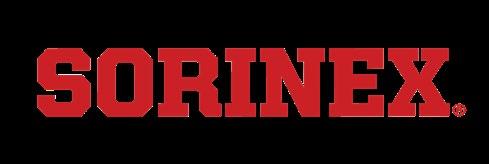





BUILDING FOR SPORTS FROM START TO FINISH




The 2025 THSCA Hall of Honor Banquet, presented by Balfour, will be Saturday, July 19, 2025 in the Henry B. Gonzalez Convention Center, Stars at Night Ballroom in San Antonio, Texas. Ticket info available at www.thsca.com/hoh


Donald Fain Brooks was born on October 8, 1941, in Crescent, Oklahoma. He attended college at Northwest Oklahoma in Alva and received his Master’s Degree from UTEP. Don was the only member of his family to graduate college, an accomplishment he attributed to his participation in athletics. He started his football coaching career as the head coach at Crescent and Fairview, Oklahoma. Don moved to El Paso in 1969, where he started coaching at Morehead Middle School. He was promoted to Coronado High School in 1974, where he coached under Jack Quarles. In 1977, he became the head football coach, a position he served in for 35 years; winning 229 games during his career including multiple district titles and playoff games. Coach was inducted into the El Paso Athletic Hall of Fame, West Texas Hall of Fame, Golden T-Bird Hall of Fame, and Top O’ Texas Hall of Fame. He coached in the Texas High School Coaches Association All-Star Game, the inaugural Texas vs. the Nation College All-Star Game, and was the head coach for the Blue Thunder team in the Greater El Paso Football Senior All-Star game. In 2015, Quarles Stadium at Coronado was renamed Quarles-Brooks Stadium, and Coach was given the Key to the City. His coaching experience inspired his son, Scott, to follow
into his footsteps. Scott is the Head Football Coach at Canutillo High School. For five years, they were able to go head to head in the “Brooks Bowl” as competing rivalries for the Father/Son title in El Paso. In 2020, ex-football players came together to honor and create the Coach Don Brooks Scholarship Fund. The fund serves to provide ongoing scholastic support to a worthy Coronado football letterman who is going on to college. Scholarships are awarded annually by a selected committee of Ex-Coronado High graduates all of whom played under Coach Brooks and admire him for the positive impacts he has made on each of their lives (https://epcf.org/donbrooks).
Coach was active in the Fellowship of Christian Athletes and was a longtime member of First Baptist Church El Paso. His interests outside of football included attending his children and grandchildren’s activities and games, breeding and raising American Quarter Horses, tending to his yard, and making time for his bulldog Zeus.

Coach Brooks passed away on April 30, 2021. He was a dedicated family man. Don was married to Ellen for 46 years. He is survived by his five children; Scott Brooks (Karen), Shannon Brooks, Kendra Bradley (Charlie), Kara Bills (Matthew), and Kassie Hathorn (Geoff). Don also leaves behind his grandchildren Shaun Hinson, Jordan Martin (Dave), Tyler Brooks (Kelsey), Bo Brooks, Berkley Bradley, Bray Bradley, Barrett Bradley, Logan Hathorn, Henry Cooper Hathorn, and his great grandchildren Bailey Brooks, Samuel Brooks, Ryder Martin and Arlo Martin.

Brad Davis has been a Texas High School Football Coach for 37 years. Coach Davis started his career in 1986 working for his dad at Frenship ISD. He started as a middle school coach and was promoted to Varsity QB’s Coach in 1989. Brad went on to serve as Frenship’s Offensive Coordinator from 1999-2005, then as Athletic Director and Head Football Coach from 2006-2017. As Frenship’s Head Coach, the Tigers won 80% of their games, with six undefeated District Championships, and eight overall District Championships.
Frenship teams played in the State Semifinals in 2000, 2005, and 2006; the State Quarterfinals in 2001, 2002, 2004, 2007, 2008, and 2012; and the Regional Semifinals in 1999, 2011, and 2013. Brad’s Frenship coaching honors include eight-time “District Coach of the Year”, seven-time “City Coach of the Year”, and seven-time “South Plains Coach of the Year.” In 2009, he was named “Man of the Year” by The Wolfforth Area Chamber of Commerce and Agriculture; and the Texas Tech Chapter of the National Football Foundation selected him as “Coach of the Year” in 2012 and presented him with the “Outstanding Contribution to Amateur Football” Award in April, 2025.
After leaving Frenship in 2017, Coach Davis was hired by Grandview High School as Athletic Director and Head Football Coach. In his first year at Grandview the Zebras won 12 games and advanced to the Class 3A State Quarterfinals. The following year they won
the 2018 Class 3A Division 1 State Championship with a record of 14-2. It was Grandview’s first State Title in its 109-year history. Coach Davis was named “District Coach of the Year” and “Johnson County Coach of the Year” both football seasons, and The Harris Ratings awarded him with the Class 3A “Statewide Coach of the Year” after the 2018 State Championship season.
Brad served on the THSCA Board of Directors from 2005-2008 where he was chairman of the Board Policy Committee and later chaired the Football Advisory Committee from 2010-2013. He helped coach the North All-Star Football Team at the 2005 Annual Coaching School Convention in San Antonio, the 2006 ASCO West Texas All-Star Classic in Lubbock, and the South All-Stars at the 2008 Under Armour High School All-America game in Orlando, Florida.
Brad and his wife, Jamie, a retired elementary teacher, have been married 33 years and have two children. Their son, Clay, works as an Account Manager for the Athletic Department at Penn State University. Their daughter, Rachel, will graduate from Physician Assistant School in a few weeks and will be getting married in September.
Brad is joining his father, Bobby Davis, as a member of the THSCA Hall of Honor. Bobby, a longtime and legendary Texas High School Football Coach and leading voice of the Texas High School Coaches Association, was inducted in 1999.


A 1986 graduate of Gilmer High School, Traylor earned both undergraduate (1990) and graduate (2002) degrees in education from Stephen F. Austin while playing football as a walk-on.
Traylor began his coaching career as an assistant coach at Big Sandy HS in 1990-93 before a seven-year stint (1994-2000) at Jacksonville HS. In 2001, Traylor was selected to return to his alma mater, Gilmer HS, as the head coach. Traylor built his hometown program into a prep powerhouse during his 15-year tenure leading the Gilmer Buckeyes.
A four-time Texas High School Coach of the Year, he posted a 175-26 record and led Gilmer to five state championship game appearances, three state titles and 12 district crowns. The Buckeyes turned in a pair of perfect 16-0 seasons, won 10-or-more games 11 times, and registered seven 13-win seasons and three 15-win campaigns during his career.
In 2014, his undefeated Class 4A Division II state championship team boasted one of the most prolific offenses in Texas prep history. Gilmer scored 950 points, the second-most at that time in state history, averaging 59.4 points and 536.1 yards over the 16game season. The defense was equally dominant, allowing only 276 points with five single-digit efforts and two shutouts. Gilmer’s two other state titles under Traylor both came in Class 3A in 2004 (Division II) and 2009 (Division I), before the change in class structure in Texas high school football moved the school into Class 4A. After 15 years on its sidelines, Gilmer renamed Buckeye Stadium to Jeff Traylor Stadium to honor his successful career.
Inducted into the East Texas Coaches Association Hall of Honor in 2019, Traylor received numerous honors during his prep coaching career, including being named Coach of the Decade by the Tyler Morning Telegraph. He is a 12-time District Coach of the Year, four-time East Texas Coach of the Year, and a four-time Ted Jeffries Award winner. He has received the Carl Padilla Coach of the Year, KYKX Coach of the Year, and Old Coach Network Coach of the Year
awards twice each. He is being inducted into both the Texas High School Coaches Association (THSCA) Hall of Honor and the Texas High School Football Hall of Fame in 2025.
In 2015, Traylor moved to the college ranks, taking a position with the University of Texas as the special teams coordinator/tight ends coach. After two seasons with the Longhorns, he completed assistant head coaching stints with both SMU and Arkansas, before being named head coach at the University of Texas – San Antonio in December of 2019.
Traylor has turned around the UTSA football program by instilling his 210 Triangle of Toughness culture, which has led to positive results on and off the field. The Gilmer, Texas, native has led the Roadrunners to a 46-20 record in his first five years at the helm, the most wins and best winning percentage (.697) by a coach in program history. Under his watch, UTSA has recorded the most wins (46) among FBS teams from the state of Texas since 2020.

During the Traylor era, UTSA has captured a pair of conference championships, earned five straight bowl berths with back-to-back bowl wins and made a combined 23 appearances in the three major national polls. He has coached nine All-Americans, three national award finalists, 91 all-conference selections and a pair of NFL Draft picks. He has received two Conference USA Coach of the Year honors and has been a finalist for several national Coach the Year awards. He has been named AFCA Region 4 Coach of the Year, San Antonio Sportsman of the Year, and Scout.com Big 12 Recruiter of the Year.
Traylor has more than 30 years of coaching experience, and takes great pride in his Texas high school coaching roots and his continued ties to THSCA coaches across the state. Coach Traylor and his wife, Cari, have three children: Jordan, Jacob and Jaci.

Coach Warren was born in Abilene, Texas in 1961 to Lela and Jim Warren, both students at McMurry University at the time. He was born into what turned out to be a family of teachers and coaches. The day after Steve was born, his Dad took him to a track meet at ACU, and from then on sports was a big part of his life.
Steve graduated from Lockney High School in 1980 and was a multi sport letterman in football, basketball, track and golf. His dad, Jim Warren, was the head coach; and Steve played for him throughout his high school career. "One of my highlights of my high school sports career was playing for my dad. I had pretty much grown up in the fieldhouse and couldn't wait to play for my dad, those were some special times." My mom was a high school English teacher, and was right in the middle of everything me and my brothers participated in no matter what it was. My dad was a member of the THSCA Board of Directors from 1973-75. The THSCA was important to our family and will always be. My youngest brother, Doug, was elected to the THSCA Board as well.
After high school, Steve walked on at Angelo State and was on the football team for the next three years. In 1982, he was offered the opportunity to start coaching in a graduate assistant role and was excited to get his coaching career started. After two years as a defensive assistant at Angelo, Coach Warren had the opportunity to follow one of his coaches from Angelo, Mark Saunders, to Grapevine High School, where he coached the defensive backs and also track for two years. Tom Ritchey was headed to Sweetwater and asked Warren to come as his receivers coach as well as his head track coach. After only one year, Steve had the opportunity to be a head coach at Wall
High School and was excited to be in that role at the early age of 24. Two years later, he left to become the defensive coordinator for Coach Flint Risen and the Rockwall Yellowjackets. His life changed forever as his son, Stephen, was born while he was coaching in Rockwall. Three years later and a lot of learning and success, Steve was able to return to West Texas as the head coach at Rotan High School.
Two seasons later, Gary Gaines called, and wanted Coach Warren to come to Abilene High School as his defensive coordinator, where he spent two seasons in that role before being promoted to the head coaching position in the summer of 1994. Warren spent the next 19 years as the head coach of the Abilene Eagles and retired in 2015. While at Abilene High, the Eagles made the playoffs in 1999 for the 1st time in 40 years and made the playoffs 16 times with nine District Championships, a trip to the Semis in 2007, and a State Championship in 2009.
The district championship in 2008 was extra special, as his son, Stephen, was the team's quarterback.

Coach Warren retired as the winningst coach in The Little Southwest Conference History, with an overall record at Abilene High of 175-68. Highlights of his career have included multiple Coach of the Year honors, serving on the THSCA All-Star Selection Committee, coaching the THSCA North All-Star team in 2011, and serving on the THSCA Board of Directors. Coach Warren was elected President of the THSCA for 2013-2014. He was also inducted into the Big Country Hall of Fame in 2019. His overall Coaching Record 190-87.
Coach Warren has two younger brothers: Russ, who works as the WAC Conference Sr Assc. Commissioner, and Doug, the highly successful head coach of the Wimberley High School Texans. He calls them the two most supportive brothers a brother could have!
Steve has been married to Pam for six years and they enjoy following their nine grandchildren. Family means everything to them!

Coach Rodney Webb’s coaching career has spanned 36 years, the past 23 years as a Texas High School Head Football Coach and Athletic Director. Coach Webb has a career head coaching record of 179-91, and a playoff record of 33-19. He has led four different programs to the Regional Finals, and three to the State Semifinals.
He is currently entering his third year as the Head Football Coach and Campus Athletic Director at

Rockwall-Heath High School. He spent the previous year as the Director of Athletics for the Highland Park ISD. Prior to that, he spent two years at the helm of the Denton Guyer football program, leading the Wildcats to the Class 6A State Finals and a 14-2 record in 2021. The Wildcats went 11-3 in 2020, reaching the 6A State Semifinals. Prior to taking over at Guyer, Coach Webb spent seven seasons as Head Football Coach at Rockwall High School. In his tenure at Rockwall, the Yellowjackets went 60-29. They won more playoff games than in any other seven-year span in over 100 years of Rockwall football, advancing to the Area round or further in each of Webb’s seven seasons, including a run to the 6A State Semifinals in 2019.
He spent the previous five years as the Head Football Coach at Mesquite Horn High School, where he guided the Jaguars to the playoffs every year of his tenure, reaching the State Quarterfinals in 2010. Prior to coming to Horn, Coach Webb served as Head Football Coach and Athletic Director in Royse City for five years, from 2003-2007. During that time, Bulldog Football went 44-16, with trips to the State Semifinals (2004) and State Quarterfinals (2004, 2006).
Coach Webb has had the privilege of coaching seven players who have advanced their careers to the NFL, and he has coached 27 kids who have gone into coaching either at the high school or collegiate level.
Coach Webb played football at Tarleton State University, where he earned All-American and Team MVP honors in 1989. He was inducted into the Tarleton Hall of Fame in 2007. He is a 1986 graduate of North Garland High School. He was also recently inducted into both the Garland Sports Hall of Fame and the Royse City Athletics Hall of Fame.
While at Tarleton, he met and married his wife of 33 years, Fran, who has recently retired from public education. They have one daughter, Dr. Gracy Webb, who is a licensed Physical Therapist currently residing in Waco.
For the past 14 years, Coach Webb has been deeply involved in the Texas High School Coaches’ Association. He served as the President of the THSCA from 2019-2021; the only THSCA President to have served for a span of three terms.








Largest football equipment manufacturer of helmets and shoulder pads.
Largest reconditioner of football equipment in the world. Market leader in football head protection technology. The industry leader in smart helmet technology.
Riddell is proud to sponsor the Texas High School Coaches Association










• Lightest, best-fitting All-in-One headset
• No setup required & easy to use
• No cord!
• No basestation

• Superior sound quality with intelligent noise cancellation
• Up to six customizable channels with unlimited users
• Durable weather-resistant construction
• Mix-and-match All-In-One with traditional Cobalt PLUS beltpacks and player receivers
• Revolutionary drop-in wireless headset charger available





by: shaun mcdowell
Director
In my 22 years of experience as a head football coach, assistant coach, and campus athletic coordinator, I have seen countless high school sports programs succeed and falter. If there’s one topic that consistently determines the trajectory of these programs, it is the relationship between coaches and parents. Handling parent interactions is arguably the most important and challenging aspect of a high school coach’s role. When managed well, it fosters a healthy environment that benefits athletes, parents, and coaches alike. When mishandled, it can lead to conflict, burnout, and a diminished experience for everyone involved. Let’s delve into why this is such a critical topic, the challenges it presents, and practical strategies to help high school coaches navigate this often-delicate relationship.
Parents are essential stakeholders in high school sports. They are the ones who enroll their children in programs, provide financial support, volunteer their time, and cheer from the sidelines. Their investment in their child’s success, both athletic and personal, means they have a vested interest in the program. The athlete is at the center of the parent-coach dynamic. A positive relationship between parents and coaches creates a support system for the athlete, promoting confidence, development, and enjoyment. Conversely, tension between parents and coaches can place undue stress on athletes, impairing their performance and overall experience. Parent-related conflicts are among the top reasons high school coaches leave their positions. Unrealistic expectations,
frequent complaints, and personal attacks can lead to burnout. Addressing this issue is vital for retaining skilled and passionate coaches who are critical to the success of a school’s athletic program.
Parents often have expectations that differ from those of the coach. Some parents prioritize winning above all else, while others may expect preferential treatment for their child. Coaches, on the other hand, typically focus on team development, fostering sportsmanship, and balancing playing time fairly. In the age of instant communication, boundaries between parents and coaches have eroded. Coaches frequently receive texts, emails, and even social media messages at all hours. This lack of boundaries can overwhelm coaches and blur the lines between professional and personal life. Parents are deeply emotionally invested in their children, which can cloud their judgment.

This often leads to biased perceptions of their child’s abilities, playing time, or role on the team. Coaches must navigate these emotional waters with care. High school sports often have a community focus, meaning conflicts between parents and coaches can quickly become public. Social media amplifies this scrutiny, making it easy for disputes to spiral out of control and harm the program’s reputation.
Transparent and proactive communication
is the foundation of a strong parent-coach relationship. Coaches should host a pre-season meeting to outline team policies, goals, and the coach’s philosophy. Clarify expectations around playing time, conduct, and communication. Use a single platform, such as a team app like SportsYou or email distribution list, for all official communications. This ensures consistency and reduces the likelihood of miscommunication. Set designated office hours for non-urgent

parent concerns and encourage parents to use these times to discuss issues. A parent code of conduct outlines acceptable behavior and consequences for violations. This document should cover expectations for sideline behavior, guidelines for addressing concerns with the coach, and prohibited behaviors, such as confronting coaches during or immediately after games. Have parents sign the code of conduct at the beginning of the season to reinforce accountability. Many conflicts arise from misunderstandings about coaching decisions or program goals. Educating parents can mitigate these issues by offering workshops on topics such as sportsmanship, athlete development, and the coach’s role in fostering long-term success. Share resources like articles, videos, or podcasts that explain the benefits of team dynamics, balancing competition and fun, and the importance of resilience.
Taking the time to build personal relationships with parents can foster trust and mutual respect. Coaches can attend school events, community functions, or informal team gatherings to interact with parents outside of the athletic setting. Acknowledge athletes’ achievements publicly, whether it’s through social media, newsletters, or awards ceremonies. Parents

who feel their child’s efforts are recognized are less likely to harbor resentment. Conflict is inevitable, but how coaches handle it can either de-escalate or exacerbate the situation. Allow parents to voice their concerns without interruption. Paraphrasing their points can demonstrate understanding and empathy. Avoid becoming defensive or emotional, even if the parent’s approach is confrontational. Keep records of all significant interactions with parents, including emails, meeting notes, and incident reports. This documentation can be invaluable if issues escalate. When conflicts persist or become unmanageable, involve the athletic director or school administration to mediate. Encourage athletes to take ownership of their experience by addressing concerns directly with the coach. This approach reduces the likelihood of parental interference, teaches valuable life skills like communication and selfadvocacy, and helps athletes build a stronger relationship with their coach.
When coaches effectively manage relationships with parents, the benefits extend far beyond the immediate season. A culture of respect and collaboration attracts more families to the program and retains talented coaches. Athletes thrive in an environment
where parents and coaches work together to support their growth. Coaches are less likely to experience burnout when they feel supported by parents and administrators. Positive relationships foster a sense of unity and pride among athletes, parents, and the broader school community.
The parent-coach relationship is a critical, yet often overlooked, component of high school athletics. By prioritizing clear communication, setting boundaries, and fostering mutual respect, coaches can navigate this dynamic effectively. It requires effort, patience, and a commitment to professionalism, but the rewards, for athletes, parents, and coaches alike, are well worth it. I have seen firsthand how coaches who master this aspect of their role create programs that not only win games, but also develop resilient, confident, and wellrounded young athletes. For coaches, there may be no greater legacy than that.







DIGITAL TICKETING IS NOW PART OF THE FAN ENGAGEMENT SUITE.

Fan-friendly and easy to manage. Meet Hudl Tickets.
Everything in one place.
Fans can watch live games and highlights, see schedules, and now buy tickets, all in one place.
Completely customizable. Choose your pricing, ticket types, capacity and single or multi-game ticketing.
No added cost. It’s free to add Hudl Tickets to your organization.
More efficient entry.
Each ticket holds a QR code that fans scan at the gate, giving them direct entry in seconds and reducing lines. No minimums.
There are no minimums on tickets sold. Sell as many or as few as you’d like.
Let Hudl do the setup.
Let us know which events you want to offer digital ticketing and we’ll set it up for you.
Better reporting and security.
Digital sales simplify the accounting, security, and reporting process. Get a real-time look at who purchased tickets, tickets sold, and revenue generated.

Make your live events easier to attend. Get started with Hudl Ticketing at: hudl.com/solutions/fan/ticketing




BY JEREMIAH BUTCHEE

One thing we do here in Stephenville that is pretty unique, and has been a game changer for us since 2020, is pulling the tackle on all the plays in our Power Menu. While most blocking scheme adjustments are based on game planning for a defensive front, our decision to start pulling the tackle began with personnel. In 2020, we had a junior offensive tackle that was the best puller on our line; so we decided to see what it would look like to pull him on Power and GF Counter (which became TF Counter), along with GT Counter and Dart. While the decision began with personnel, we have kept the tackle as the primary puller because of how much it benefits our blocking scheme in the Power Menu both on the backside and the playside. Now that you know the history, the question still remains: Why does Stephenville pull the tackle on Power?
Pulling the tackle eliminates the need for a tackle/center squeeze over the pulling guard and allows for better lateral knockback by the center and the backside guard. This knockback creates a running lane option for the running back on the backside of the frontside combo instead of having that lane cut off by the squeezing tackle. This new lane can take great advantage of a backside inside linebacker that is trying to beat the double team over the top with speed and force him to stay at home longer, increasing his chances of getting caught in the wash.
The backside DT/DE X stunt has been a staple of 4-Down defenses to stop guard pull Power for years and is extremely difficult to pick up with the center/tackle squeeze. However, by pulling the tackle, the guard and center can easily work together to defeat the TEX stunt. We coach our guards to give presence to the 3 technique while screwing their eyes on the near hip of the DE. If the near hip of the DE goes vertical then the guard exits and washes the DE up field. If the near hip loops behind the 3, he then holds his position and collects the 3 tech working to his outside. The presence of the guard allows the center to not have to use a full, head across the bow, down block step but instead be able to slow down and stay square on his way to the 3. The center being under control allows him to redirect and pick up the loop DE if his 3 tech disappears behind the guard.
Pulling the tackle opens up playside blocking adjustments especially vs. 3-Down. If you are facing a 4i that is creating a hard spot or if you are facing a 5 tech that you are able to kick but have a nosy outside LB that is folding inside the kick, you can arc release your playside tackle to the outside LB and kick the 4i or 5. If you are facing a 3-3 Stack and have a backside stack backer that is causing trouble you can carry your center/guard double back to the backside backer and release your playside tackle to the Mike, leaving the playside backer for the pulling tackle.
The Bear is designed to stop gap schemes, specifically Power, by forcing the offensive line to execute 3 wide alignment downblocks (Center back on 3, PS guard down on nose, PS tackle down on 3) which are the hardest blocks to execute in any gap scheme. Pulling the tackle allows you to still have a playside double either on the nose or the playside 3 tech depending on how your personnel match up with theirs. Scheme wise, it turns the Bear into a normal 3-Down and allows the offense to use all of their playside blocking adjustments that are outlined in the paragraph above.
- Load up and drive off playside leg
- Gain width and depth with backside leg
- Square and vertical when playside foot hits
- Rub paint off double, kick playside inside linebacker
- Point toe to heel of defensive end in his stance
- Follow path set by first step gaining ground into LOS
- Rub paint off double team
- Pull Rt/ Hit Rt, Pull Lt/Hit Lt
- Run through contact
- Attach spill defensive end to double team
I consider it an honor to be given the opportunity to write an article for the magazine of this great association and hope that it might be of some use to the best coaches in the nation. If you have any questions or need anything from any of us, the door to Stephenville HS is always open.





Your questions and concerns about your health matter. Ascension Seton care teams are here to empower you and your family by listening, respecting your experiences, and creating a care plan that works for you. You deserve to be seen and heard. That‘s why our doors are always open to provide health and healing, for the whole you — body, mind and spirit. To us, you are more than a patient. And together, we are a community.


Four outstanding organizations, transformed into one powerhouse. And while our name may have changed, everything you count on - great service, uniforms, and gear remain.

YOUR GAME IS ALWAYS GAME ONE









By Daniela Prado - Johnson High School Head Cross Country Coach
Youth from lower socioeconomic backgrounds and ethnic minority groups often encounter significant barriers when it comes to participating in sports. These include, but are not limited to, financial hardship, limited access to resources and facilities, and a lack of support from their families.
I have been running since I was 14 years old. Joining the cross country team as a freshman was a significant moment in my life, and I will always be grateful for the doors it has opened for me. I was labeled as “economically disadvantaged,” an identification that classified me as an at-risk youth. Without a high school education and immigrating to Laredo from Mexico, my hard-working parents had to work low-paying jobs. Because they often struggled with making ends meet, my parents preached the importance of an education and to always do our best. “Echale ganas,” do your best, was the motto growing up. My parents taught my siblings and I the importance of a strong work ethic, and their love and support is the foundation of our success.
Coming from a very humble background and with the encouragement of my parents, I used the gift of running to help me earn a college education. As a college freshman at a D1 school, I worked hard to earn a top 8 spot to run at the conference meet. Unfortunately, that year was cut short due to a femoral neck stress fracture requiring urgent surgery. I was devastated. It was incredibly daunting, both mentally and physically, to come back from this injury, but I did and ran even faster. I didn’t know it then, but I believe the lessons I learned throughout that journey is what has contributed greatly to my coaching methods and the person I am today.
Only about 30% of head coaches are female. I was in disbelief at the statistics, considering we are in the year 2024. Then I did the math. Out of the ten head cross country coaches in my hometown, two are female. However, being one of two females didn’t intimidate me. In fact, it empowered me, and I credit that to my mentors and my family. They have given me the tools to grow as a leader, and their belief in me has given me strength to build a competitive program.
Laredo is located in South Texas along the Rio Grande River. According to the U.S. Census Bureau, Hispanics contribute to 95.2% of the total population with a per capita income of $24,584.
Lyndon B. Johnson High School has a yearly enrollment of about 3200 students, 91.7% of which are labeled as “economically disadvantaged.” Students attending JHS live in the Laredo area as well as the neighboring communities of El Cenizo and Rio Bravo. JHS is unique in that it also houses two early college programs. The early college program allows students to graduate with their high school diploma and an associate of arts. The Biotechnology & Life Sciences Innovative Academy, BLSIA, offers students the opportunity to graduate high school with an associate of science. These programs provide students with a head start into the real world while eliminating additional financial burdens that come with attending college.
The school is located about a mile from the Rio Grande riverbanks, and law enforcement units are a familiar
sight. Because most students live near the riverbanks, they often witness crime making them desensitized to the adversity they experience on a daily basis.
Coaches at JHS face unique challenges that impact our approach to training. With about 600 athletes, we typically have athletes in common with other sports. More often than not, our programs serve as a safe haven. Our programs provide autonomy, community, support, and opportunity.
The cross country team self-reflects by answering thoughtful questions before and after the season, and during times where the team vibes may need a “reset.” When there are moments of strife on the team, I typically share a personal story so that they know it is ok to be vulnerable followed by self-reflection. These are the questions I used in our most recent self-reflection session:
• What’s your favorite thing to do outside of running?
• What’s a hidden talent or skill you have?
• If you could have dinner with any person, past or present, who would it be and why?
• What’s a personal goal you’re working toward (inside or outside of running)?
Team and Running Focused
• What’s the best piece of advice you’ve ever received about running?
• Why did you start running, and what motivates you to keep going?
• What’s a race or practice moment that made you feel proud of yourself or the team?
• What’s something you appreciate about being part of this team?
Having the athletes self-reflect has allowed me to learn so much about them that I may have otherwise never learned. On our team, we have competitive Rubik’s cube solvers, master chess players, artists, cooks/bakers, skateboarders, and baseball/softball players. Those same individuals may also be suffering from chronic adversity. They may have a parent who is currently incarcerated, deaths in the family, raised by a single parent, and/ or may not see their parents as often as they’d like. These factors, along with many others, have refined my approach to training and competition.
Having grown up with similar circumstances, it has caused me to think about what I needed when
I was in their shoes. Of course, it would be impossible for me to implement everything on my own. Coach Alvarado, my assistant and former college teammate, has played a large role in developing a positive team culture and competitive program. His upbeat personality and knowledge of what terminology is currently “in” helps bridge the gap and helps us connect better with the team. Coach Alvarado and I spend the time before practice making casual conversation and laughing with the runners. We want them to feel “seen” and cared for. Due to their backgrounds, many of our runners struggle with trust issues, so we make it a point to explain the importance and purpose of each workout. We encourage them to ask questions in order to eliminate any doubt, and we want them to feel safe enough to ask questions or to come to us with concerns they may have. They’re able to free themselves from worries that consume them even if it's just for that moment.
Two of the most important factors to a successful program are consistency and communication. We need to make sure our runners are at every practice, but with so much against us, we had to reevaluate our approach to practice and how absences are communicated. These are the actions we take to maximize attendance:
1. Provide a weekly calendar and share important information with parents and athletes via sportsYou.
2. Provide the weekly goal and mileage so that athletes take ownership of their attendance.
3. Keep the practice schedule as consistent as possible. (Many have to make arrangements for practice.)
4. Minimize any changes, and update parents and athletes ASAP.
5. We ask the runners to communicate their absences with us. If something was more important than attending practice, then it is worth informing us. (This requirement has also lowered the amount of absences since it holds them accountable. We are teaching life skills.)
Another important factor to a successful program is parental involvement. At our parent meeting, we made it clear that we didn’t want to become an additional stressor. We were here to support the parents by checking on grades, calling home when we notice a change in behavior, and by providing equipment to help keep their children healthy. The look of relief on their faces was undeniable. We do ask for their support by making sure their child attends practice and runs on their own when they’re required to. We take these actions to support our parents:
1. Build rapport with parents. This builds trust and makes communication easier when having to discuss important issues.
2. Have a group of committed booster parents. Our booster officers actively participate in fundraisers and volunteer work.
3. Explain the goal and process of the fundraiser to parents. This will make sure each runner is involved. Training and Program Development
On summer days, we meet at 6:45 a.m. based on feedback from the parents. Starting any later was affecting the time they arrived at work, and without hesitation, we changed the time. As the season starts, we move practice to 6:15. Since we have multiple runners who are in the early college programs, they cannot be a part of the athletics block. Therefore, we make sure we bring them in early enough to be able to complete the workout and head to class. We do what is best for the team above all.
Our training program is outlined by four mesocycles that consists of base phase, pre-competitive phase, competitive phase, and championship phase. Our weekly mileage averages anywhere between 30-55 miles per week. Since training surfaces mainly consist of pavement and asphalt, we supplement their running with HIIT training and a “prehab” two-four times a week. By implementing the supplementals, we have been able to minimize the occurrence of shin splints and other aches and pains.
Due to financial burdens, members of our team may not be able to get a new pair of shoes every 300 miles. Through fundraising, we have been able to provide running shoes and spikes, snacks, waters, and sports drinks to help keep them healthy year round. The money we raise also pays for additional meals when we travel. To avoid placing anyone in an uncomfortable situation, we do not make it a requirement to bring their own money. As we have raised more funds, we can now provide snacks for travel and team dinners, which is something the team looks forward to.
Despite all the variables, we have built a competitive program by creating a safe and nurturing atmosphere and by teaching them to become students of the sport. The 2021 season was my first year as a head coach for both the boys and girls. The team had not advanced since the state qualifying team more than 16 years ago. I was excited and driven to get the program going again, but
I knew it was important to set realistic goals. With that said, we had a talented group of sophomores and juniors on the boys’ side; however, the girls side needed more time to develop into a competitive team. Our first goal was to advance to have the boys advance to regionals, and they did. They were the district champions that season! During the ‘22 season, the boys team became back-to-back district champs! They went from placing 14th to 7th in a highly competitive region. This team set the tone for the program.
As I mentioned earlier, our girls' side needed time. By the time I was a third year head coach, I knew they were ready. We set our goals early on in the summer months, and we knew this was the team that would advance. We did not have a lot of depth, and we also had no room for error. Once I made my decision to only run five girls instead of seven, I made it a mission to make sure the girls were mentally ready and tapered their training to peak at district. They became a regional qualifying team that season by earning a 3rd place finish at district! Now both the boys and girls’ teams have set the standard for the program.
This past season, we welcomed the addition of another school to our district, which made the district meet even more competitive. As usual, we set our goals at the beginning of summer training. I prefer to revisit our goals during this time as it helps mentally prepare the team for base training. We had three boys and one girl earn their ticket to the regional meet. We were the only school who had three runners in the top 10 on the boys’ side. The regional qualifier on the girls’ side was not ranked to advance, but she trusted her training and executed the race strategy precisely. The first thing our individual regional qualifiers did was thank their coaches and their teammates. They knew their teammates contributed to their success.
As coaches, we constantly remind the team that we are teaching them life skills such as communication, accountability, and resilience. I believe it is the adversity they experience on a daily basis that is shaping them into resilient individuals.
As a member of our team, they learn to use their struggles as motivation. They learn the value of a strong work ethic. They learn the importance of education. They learn to always strive for more. They learn to not become complacent. They develop grit. With this in mind, I hope each runner who has gone through our program continues to achieve their goals and continues to implement the tools they have learned as a member of the Johnson High School Cross Country team.














BY JOE HUBBARD THSCA REGION 8 DIRECTOR - EAST CENTRAL HS
Being a high school football head coach is a challenge in itself, but when your own child is on the team, it adds a layer of complexity that is both rewarding and demanding. Coaching my son, Joe, through his high school football career was one of the most memorable and rewarding experiences of my life—filled with highs, lows, and countless lessons.
Some of the best moments came from the time we spent together off the field. Every morning, we rode to school, and every afternoon, we made the drive home. Those rides became a sacred space for father-son talks. We’d discuss life, his goals, and the kind of man he wanted to become. Joe would often tell me stories about his teammates’ curiosity, asking him, “What’s Coach like at home?” Those moments reminded me of the unique bond we shared, and it made the journey that much more special.
Not everything was easy, though. When Joe was a freshman, whispers from naysayers began. People assumed he was only on the field because of me. It didn’t help when, during one game, he dropped an interception, and a parent shouted, “That’s the coach’s son—he can’t catch!”
Joe and I had many conversations about those moments. I told him that to silence critics, he had to prove himself. His work ethic needed to be second-
to-none, and he had to let his performance speak louder than any detractor. I made it a point to step back and let the assistant coaches handle him directly. He had to earn his place, not just in my eyes, but in the eyes of his teammates, assistant coaches, and community.
Joe’s journey wasn’t without physical hurdles. Over his career, he battled through two broken elbows and a torn labrum. Despite these setbacks, his perseverance never wavered. By his junior and senior years, he started at cornerback, ultimately earning 1st Team All-District honors in his final season. Watching him succeed after all he endured was one of the proudest moments of my coaching career and as his Dad.

For coaches in a similar position, my advice is simple but crucial:
1. Set the Standard: Help your child understand that being the coach’s kid comes with added scrutiny. They must be the hardest worker and the most accountable player on the team.

2. Allow Mistakes: Resist the urge to expect perfection. Treat your child like any other player—correct them when needed and celebrate their successes without favoritism.
3. Prepare Them for Criticism: Early on, some teammates and parents may unfairly criticize them simply because they’re your child. Teach them to stay the course, block out the noise, and prove their worth through effort and resilience.
4. Create Boundaries: Let your assistant coaches take the lead in coaching your child. This allows them to build trust with other leaders and develop as part of the team, not just as “the coach’s kid.”
5. Enjoy the Ride: The time goes by really fast so make sure to take time to enjoy the unique memories that you are making with your son or daughter being their coach. Whether its the bus rides or the moments before or after games, please remember to enjoy the time you have with your child.
Coaching Joe taught me as much as it taught him. It reminded me of the power of resilience, the importance of character, and the joy of seeing a young person grow through adversity. Though it wasn’t always easy, I wouldn’t trade the experience for anything. Watching Joe succeed—not just as a player, but as a young man—will always be one of my greatest joys.
To any coach fortunate enough to guide their own child on the field or court: embrace the journey, because the lessons you both learn will last a lifetime.





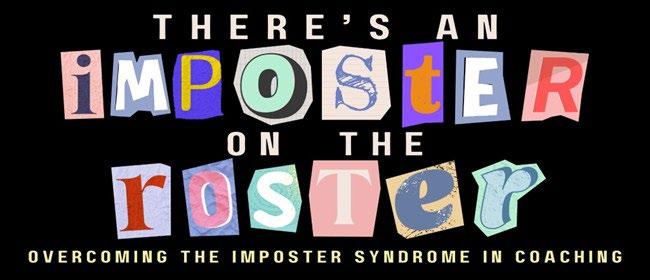
casey veen, m.sC.

Maya Angelou, the literary legend, once said, “I have written eleven books, but each time I think, ‘Uh oh, they’re going to find me out now. I’ve run a game on everybody and they’re going to find me out.” Albert Einstein, you know the father of modern physics and that whole E = mc² thing said, “I feel compelled to think of myself as an involuntary swindler.” The oneeared Starry Night painter, Vincent Van Gogh, stated “I am terribly inadequate. It is always my great fear that my art will appear so awkward and unfinished that people will take me for a madman.” Their accomplishments are both remarkable and rare, but their feelings of fraudulence are exceptionally common. Why can’t we embrace our successes without assuming that there might have been an error? Or that our resume and experience don’t quite measure up to our colleagues? Or immediately run to the thought that we simply just don’t belong?
This internal phenomenon is a universal struggle, leaving the coaching profession no stranger to it. Whether it’s a first-time coach taking over a rag-tag team or a seasoned veteran applying for a highlysought after position, the pressure to constantly succeed can lead to self-doubt, anxiety, and a pervasive fear of failure. Coaches, who are tasked with guiding and inspiring athletes or looking to advance their careers, may find themselves questioning their knowledge, abilities, or qualifications, even when

they are fully capable. In this article we will discover the history of Imposter Syndrome, understand the characteristics and internal origins of the phenomenon, breakdown how imposter syndrome impacts coaching effectiveness, and conclude with strategies to overcome the internal struggles as well as give athletic leaders inspiration to help aid their athletic staff.
The History: The Imposter Syndrome is not a disease nor a formal psychiatric disorder, but rather a psychological phenomenon in which individuals doubt their achievements and have a persistent fear of being exposed as a fraud, despite evident success and external validation. The beginning of the imposter syndrome can be traced back to 1978, when psychologists Pauline Rose Clance and Suzanne Imes wrote a paper called “The Imposter Phenomenon in High Achieving Women”, which was later shortened to the far more catchy “imposter syndrome” which we know today. In the original paper, the authors interviewed more than 100 successful women working in academia. The idea is described as “an internal experience of intellectual phoniness. Imposters are ambitious, hard-working people who believe they must have fooled anyone
who thinks they are capable or talented” (Hussey, 2024). Even when faced with objective evidence of their skills, said Clance and Imes, they remain unwavering in their conviction that they succeeded thanks to luck or error. The more plentiful their accolades, says the paper, the more anxious they are that they’ll be “found out”. If they do fail, they see it as ultimate proof that their success was somehow undeserved (Hussey, 2024). Today the term has left the confines of women in the academic world and is used/experienced by men and women everywhere, throughout all professions including coaching.

The Characteristics: Clance believed that Imposter Phenomenon is evident through six characteristics: the Imposter Cycle: The easiest way to understand the Imposter Cycle is to give this basic scenario: You have a concern about not being good enough, so then you tend to overwork and do as much as possible to ensure no one else notices your selfperceived lack of intelligence or ability. You get a positive outcome, leading to public approval. This might make you temporarily feel okay, but the fear of not being good enough creeps back in, causing you to work even harder to prevent being exposed as the fraud you think you are, leading you back through the cycle. The need to be special or the very best: Impostors often secretly have the need to be the very best compared with their peers. Superwoman/ superman aspects: This is a perfectionist tendency, where impostors expect to do everything flawlessly in every aspect of their lives. “Atychiphobia” or fear of failure: Impostors experience high levels of
anxiety when exposed to an achievement-related task because they fear possible failure. Denial of competence or discounting of praise: Impostors have difficulty internalizing their success and accepting praise as valid, so they attribute their success to external factors to a greater degree. Lastly, “achievemephobia” or fear and guilt about success: The negative effects of imposters’ achievement are linked to their feelings of shame and fear. Imposters are afraid that their success will raise expectations and demands from others around them, in addition to the concern that unusual achievement may result in rejection.
The Origins: From a neurobiological perspective, imposter syndrome is often linked to overactivity in the brain’s limbic system, particularly the amygdala, which processes fear and anxiety, leading to exaggerated feelings of self-doubt and worthlessness when faced with perceived failures. Imposter syndrome is a response to help one navigate through difficult and troublesome environments. If the environment calls for perfect execution, one to remain on good behavior, and/or produce immaculate efficiency instead of you being your true authentic, but yet flawed-self, then you were exposed to the breeding ground of imposter syndrome. With the majority of coaches being former athletes, that breeding ground could have been cultivated from the possible unrealistic pressures during sports, having to maintain good grades in school with hidden struggles, or just simply living up to parents’ heightened expectations. Along with the troublesome environments, family dynamics/structure, unrepresented/disadvantaged groups (in categories like socioeconomic status, race, gender, or age), social media pressures, and having neurotic tendencies also play a significant role in imposter syndrome. Once the conditions are right, then the imposter syndrome will rear its head. Opportunities transform into obstacles because of the unfamiliarity and added pressure. Doubts and hesitation will overtake any confidence one might have, leaving only insecurity and the feeling of being a fraud.
Some might think that this type of thought process does not really impact that many people, or that this is simply for weak minded individuals. Well, think again. According to various studies, approximately 70-80% of people will experience imposter syndrome
at some point in their lives (Bravata et al., 2020). A 2019 study published in Psychology Today found that 1 in 5 people suffer from imposter syndrome at any given time, particularly among high-achieving professionals. Women in leadership positions are more likely to experience imposter syndrome than men, with studies indicating up to 75% of women in executive roles reporting feelings of fraudulence. Research suggests factors like gender and race can increase the likelihood of experiencing imposter syndrome, with women and people of color at greater risk as they are more likely to be underrepresented in their place of work.

Imposter syndrome remains a pervasive challenge, particularly in high-achieving, competitive environments like the coaching profession. While it’s common, its impacts on mental health, career advancement, and diversity are significant. By recognizing and addressing these feelings, individuals, teams, and organizations can create more supportive environments that promote self-confidence, growth, and inclusivity. In the next section we will analyze the coach on an individual level and see how their mental state affects their coaching effectiveness.
Imposter Syndrome can create a toxic cycle where coaches feel the need to prove themselves, which then undermines their effectiveness as leaders. It can lead to burnout, reduced team morale, communication breakdowns, and a lack of growth— both for the coach and the players. Ultimately, it hampers a coach’s ability to create a positive, growth-oriented environment where both individual and team development are prioritized. To begin this
section, let’s explore the five archetypes of Imposter Syndrome and how it could directly impact coaching efficacy by exploring some examples:

“The Perfectionist’s primary focus is on “how” something is done. This includes how the work is conducted and how it turns out. One minor flaw in an otherwise stellar performance or 99 out of 100 equals failure and thus shame” (Young, 2023).
Example: A coach who exhibits Perfectionist traits might focus excessively on flawless execution of drills and strategies. They may berate players after a nearly perfect performance if a minor mistake occurs, like missing a pass or misjudging a play. If the team wins, but the victory wasn’t by a large enough margin or the performance wasn’t “perfect” in their eyes, they’ll still be highly critical.

“The Expert is the knowledge version of the Perfectionist. Here, the primary concern is on “what” and “how much” you know or can do. Because you expect to know everything, even a minor lack of knowledge denotes failure and shame” (Young, 2023).
Example: A coach who embodies the Expert archetype prides themselves on their vast knowledge of the game and expects their players and fellow coaches to know and execute strategies with precision. They believe they must have answers for every question, from tactical strategies to training regimens. If a player asks a question they don’t know the answer to, the head coach may feel a sense of failure and try to cover it up. They may also criticize assistant coaches who don’t know as much about the game, even if it’s outside the scope of normal expectations for them.

“The Soloist cares mostly about “who” completes the task. To make it on the achievement list, it has to be you and you alone. Because you think you need to do and figure out everything on your own, needing help is a sign of failure” (Young, 2023).
Example: A coach exhibiting Soloist traits feels the need to handle every aspect of coaching on their
own, believing that asking for help or relying on assistants or players is a weakness. If they need help setting up drills or want advice on managing the team, they might avoid asking for assistance, even if it’s necessary. They could be resistant to delegation, preferring to take on all the responsibilities themselves to prove their worth. This might manifest as them micromanaging every detail, leading to burnout or ineffective coaching.

“The Natural Genius also cares about “how” and “when” accomplishments happen. But for you, competence is measured in terms of ease and speed. The fact that you have to struggle to master a subject or skill or that you’re not able to bang out your masterpiece on the first try equals failure” (Young, 2023).
Example: A coach with a Natural Genius mindset might expect that their athletes should master a new skill quickly and with ease. If a player is struggling to grasp a technique, the coach might feel frustrated or embarrassed, believing that if they were truly a competent coach, their players should learn effortlessly. They may even put pressure on themselves, thinking that they should be able to help athletes master a skill immediately, without struggle or mistakes.

“The Superhuman measures competence based on “how many” roles they can both juggle and excel in. Falling short in any role — as a manager, team member, parent, partner, friend, volunteer — all evoke embarrassment because they feel they should be able to handle it all — perfectly and easily” (Young, 2023).
Example: A coach who is a Superhuman archetype tries to juggle every possible role: they’re the head coach, motivational speaker, fitness trainer, psychologist, mentor, and even take on extra administrative duties. They often say “yes” to too many things, trying to balance coaching with personal life, community involvement, and team management. If they drop the ball on any of these responsibilities, they feel like they are failing as a coach and as a person. They might get frustrated when they can’t manage everything perfectly, believing that they should be able to excel
in every area without showing any signs of stress or weakness.
Overcoming Imposter Syndrome as a coach involves both internal shifts in mindset and external strategies to build confidence and resilience. Here are a few effective strategies to help combat these feelings of inadequacy and build a more empowered, authentic approach to coaching:

The first step in overcoming Imposter Syndrome is acknowledging that it is a common experience. Coaches should recognize that self-doubt, feelings of being a fraud, and the fear of being exposed are not unique to them but are part of the human experience, especially in high-pressure roles. Talking about these feelings with peers or mentors can help normalize the experience and reduce their negative impact. By normalizing these feelings, it allows coaches to understand they are not alone and that such doubts do not diminish their abilities or achievements. It helps break the cycle of isolation and self-criticism and reframes Imposter Syndrome as a temporary and surmountable challenge.

Shift the mindset from striving for perfection to focusing on personal and professional growth. Coaches should view mistakes as opportunities for development, both for themselves and their athletes. This could involve setting specific, achievable goals for both technical skills and leadership abilities, allowing room for progress rather than expecting flawless execution. Perfectionism is a major driver of Imposter Syndrome, as it sets unrealistic standards that can never fully be met. By emphasizing growth and improvement, coaches can take the pressure off themselves, embrace mistakes, and celebrate progress rather than fixating on failure.
Practice cognitive reframing to counter negative self-talk. Coaches should replace thoughts like “I don’t deserve this position” or “I’m not as good as the others” with more realistic, positive affirmations like “I’ve earned this role through my hard work” or “I have the skills and experience to succeed.” Writing down and challenging negative thoughts can be a powerful tool in this process. Reframing helps shift the focus away from self-doubt and insecurity, encouraging a more balanced and realistic selfassessment. This creates an internal dialogue that reinforces confidence and resilience, fostering a healthier mindset.

Athletic Administrators: Athletic Administrators, can you articulate what each and every coach on your staff wants in 5-10 years? Do you know what their aspirations are for their careers and for the programs that they are involved in? You play a critical role in supporting coaches with Imposter Syndrome by fostering an environment of openness, recognition, and professional development. Since the number of women coaches make up a scantily 22-25% of high school coaches and now knowing that women are more susceptible to have Imposter Syndrome, it would benefit your program to pay especially close attention to this group as you watch for the signs and keep the lines open. The true change doesn’t necessarily come from the individual, but from the environment that they exist in. By creating a culture where vulnerability is accepted and coaches feel comfortable expressing doubts or challenges, you can help reduce the isolation that often accompanies Imposter Syndrome. Regular check-ins and constructive feedback, both formal and informal, can reassure coaches of their competence and value. Furthermore, providing ongoing opportunities for professional growth—such as workshops, mentorship programs, and coaching resources—helps build confidence and skill. This will help retain women coaches and empower those that need it the most. Celebrate your coaches’ achievements, regardless of the scale, and encourage
peer collaboration amongst one another. This can reinforce their sense of belonging and competence. Ultimately, you have the power to shape an inclusive, growth-focused environment that helps coaches move beyond feelings of inadequacy and thrive in their roles.
In conclusion, Imposter Syndrome is a deeply ingrained psychological challenge that affects many coaches, regardless of experience or success. It manifests in various forms, from the perfectionist striving for flawlessness to the expert fearing that any gap in knowledge will expose them as a fraud. However, by acknowledging these feelings, focusing on growth rather than perfection, and practicing selfcompassion, coaches can break free from the cycle of self-doubt. Additionally, athletic administrators play a crucial role in combating Imposter Syndrome by constructing a supportive, open environment where coaches feel valued and empowered. Through professional development opportunities, regular feedback, and a culture of recognition, administrators can help coaches build confidence, overcome feelings of inadequacy, and ultimately create a more positive, growth-oriented environment for both themselves and their athletes. By addressing and overcoming Imposter Syndrome, coaches can not only improve their own well-being and performance but also inspire their teams to reach their full potential.
Bravata, D. M., Watts, S. A., Keefer, A. L., Madhusudhan, D. K., Taylor, K. T., Clark, D. M., Nelson, R. S., Cokley, K. O., & Hagg, H. K. (2020). Prevalence, Predictors, and Treatment of Impostor Syndrome: a Systematic Review. Journal of general internal medicine, 35(4), 1252–1275. https://doi.org/10.1007/s11606-01905364-1
Hussey, M. (2024, February 13). A brief history of imposter syndrome. The Brink. https://www.thebrink. me/a-brief-history-of-imposter-syndrome/
Young, D. V. (2023, February 19). The 5 Types of Impostor Syndrome. Impostor Syndrome Institute. https://impostorsyndrome.com/articles/5-types-ofimpostor-syndrome/

The future of flag f tba INCLUDES the GIRLS!
Complete the Da as Cowboys HIGH SCHOOL GIRLS FLAG FOOTBALL SURVEY and be entered to win $5,000 in Oakley eyewear for your team or sch l! Scan the QR code to complete and enter!
As the popularity of high school girls flag football grows in the United States, the Dallas Cowboys are working with school communities across Texas to provide girls an opportunity to use the game of flag football as a fun and exciting way to be healthy, to learn values taught through sport, and potentially further their education with scholarships to collegiate intitutions now playing flag football at a higher level. For more information or to discuss partnering with the Dallas Cowboys on this effort, contact YouthFootball@DallasCowboys.net.


Package Value Provides 25 Units of Oakley Eyewear




KB3 SPORTS APP has allowed us to streamline our stats & maxes for inseason & offseason as well as given us the ability to promote our players across the country.
James Clancy HFC, Klein Cain HS
MAXES & MEASURABLES can be entered by a player or coach and will be added to a player’s profile page.
Your teams’ profile page is publicly accessible to parents, players, media and recruiters with links to each player’s profile page.
Download a Team Stat File to keep track of team stats by player or team totals.
Download a Game Summary File to view play-by-play game recap.
Automatically generate a Player Stat File to view per game and cumulative player stats as well as in-season and off-season maxes and measurables.
RECRUITING
College coaches can access your players test scores, stats, maxes & measurables.
College Coaches can DM with coaches and players via our IN-APP MESSAGING.
Get Started! Download the free app for Android or Apple, join now!







